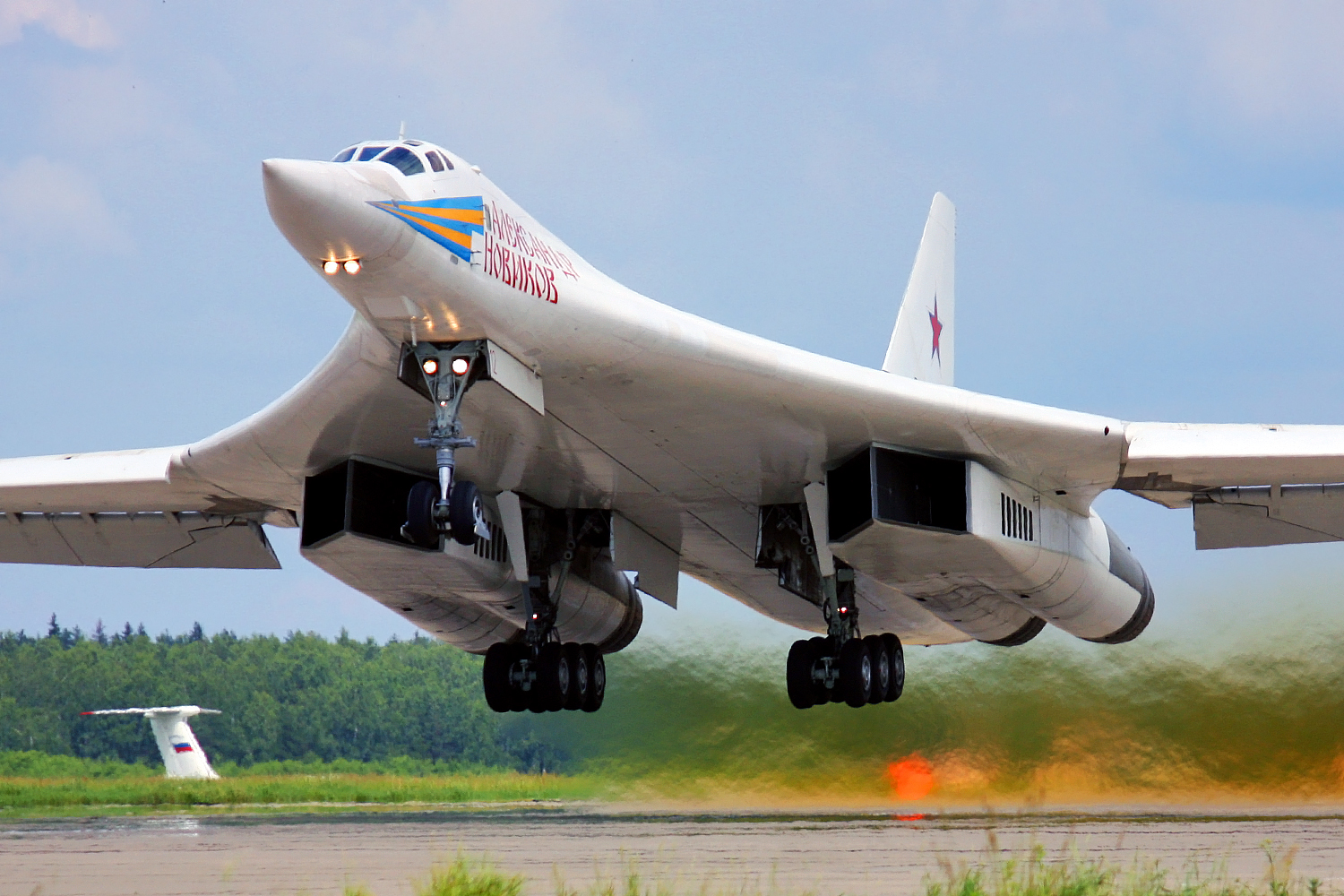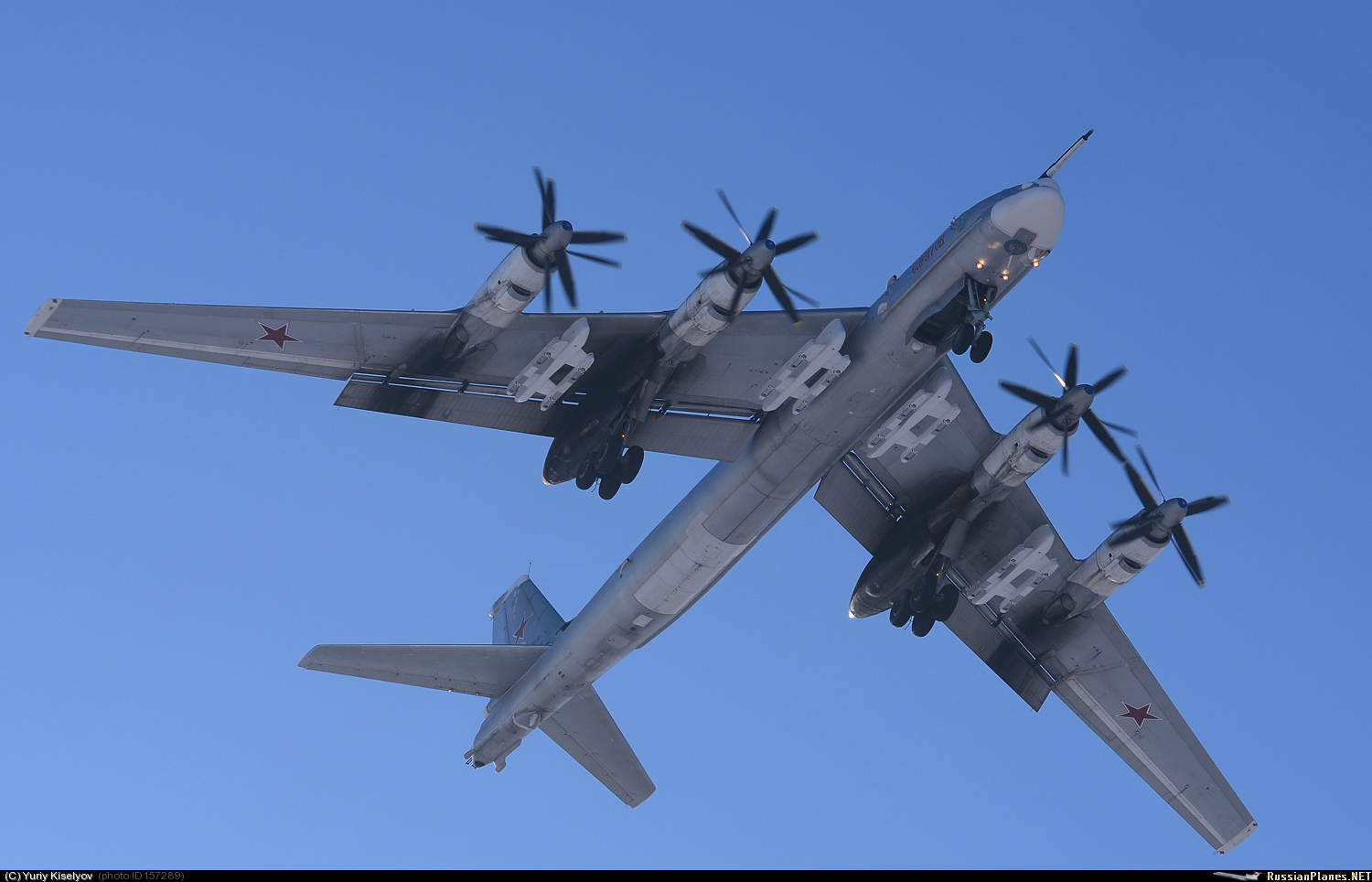Wikipedia Blackjack Bomber
Russia's bomber fleet is a Soviet legacy force. With the exception of one Tu-160, the entire fleet was built in the Soviet Union. But the planes can still pack a punch if used intelligently and efficiently. Here's a look at their specs.

The Mach 2 Tu-160 'Blackjack' was built only in tiny numbers, leaving the 1950s Tupolev Tu-16 and Tu-95 'Bear' heavy bombers to continue being used into the 21st century. The Avro Vulcan was part of the RAF V bomber force. Tu-160 supersonic strategic bomber (Nato reporting name of Blackjack) is a variable-sweep wing supersonic strategic missile carrier manufactured by the Tupolev aircraft research and engineering complex joint stock company of Moscow and the Kazan-Gorbunov Aircraft Production Association in Tatarstan from 1980 to 1992.
A U.S. Air Force B-2 Spirit in flight over the Pacific Ocean A bomber is a combat aircraft designed to attack ground and naval targets by dropping air-to-ground weaponry (such as bombs), firing torpedoes and bullets, or deploying air-launched cruise missiles. Data from Frawley, Donald, Wilson, Kardashev, Yakubovich, General characteristics Crew: 4 (pilot, co-pilot, navigator, weapon systems officer) Length: 42.46 m (139 ft 4 in) citation needed Wingspan: 34.28 m (112 ft 6 in) spread (20° sweep) 23.3 m (76 ft) swept (65° sweep) Height: 11.05 m (36 ft 3 in) Wing area: 183.6 m 2 (1,976 sq ft) spread (20° sweep) 175.8 m 2 (1,892 sq ft) swept (65.
See also:Russia's Bombers Over Europe Are Scary, But Not in the Way You Think
Wikipedia Blackjack Bomber Aircraft
Tu-160 (NATO Reporting Name: Blackjack)
The Blackjack is Russia's most capable strategic bomber. It is a supersonic variable wing aircraft — the world's largest — capable of carrying free-falling nuclear bombs and cruise missiles tipped with either conventional or nuclear warheads.
The problem for Russia is that the Tu-160 fleet is very small compared to its Tu-95 Bear and Backfire-C fleets. According to Douglas Barrie, an analyst at the International Institute for Strategic Studies in London, 'less than half are likely operationally available at any one time.'
Quantity in Russian air force: 16
Crew: 4
Max speed: 2,220 kilometers per hour.
Cruising speed: 960 kilometers per hour.
Strike Range: around 7,300 kilometers without in-flight refueling.
Armaments: The Tu-160 has two internal payload bays outfitted with anywhere from 6 to 12 cruise missiles loaded on rotary launchers. The launchers can be replaced by up to 20,000 kilograms of free-falling bombs. Extra weapons can be loaded under the plane as well.
Tu-22M3 (NATO Reporting Name: Backfire-C)
Russia's most versatile bomber, the Tu-22 is a multi-role supersonic aircraft with variable wings. It can be outfitted with nuclear weapons, cruise missiles, and anti-ship missiles.
The planes would likely be used to hit strategically important infrastructure and NATO vessels in the Black Sea, Mediterranean, and Baltic Sea.
Quantity in Russia's air force: around 63

Wikipedia Blackjack Bomber Helmet

Crew: 4
Max speed: 2,300 kilometers per hour.
Cruising speed: 900 kilometers per hour.
Strike Range: up to 5,000 kilometers depending on the weapons load
Armaments: 1 GSh-23 air defense cannon mounted on the tail, remote controlled. Anywhere from three to six cruise missiles can be loaded on the wings and internal payload bay.
.jpg)
Tu 160 Blackjack Bomber
Tu-95 (NATO Reporting Name: Bear)
The most common type of Russian strategic bomber is the famous Tu-95 'Bear,' which has been harassing European and NATO airspace boundaries over the last year.
The Tu-95 has been the staple of Russia's nuclear air force since the mid-1950s, and has been periodically modernized since then. The plane's defining characteristics are its four propeller driven engines and its bulbous underbelly.
The plane's old school design is a holdover from the its legacy as an upscaled knockoff of the U.S. B-29 Superfortress bomber — the plane that dropped atomic bombs on Hiroshima and Nagasaki in Japan.

Recent photos of Tu-95s show four so-called hard points installed under the wings, which allow the bombers to carry precision strike cruise missiles along with their nuclear payloads.
Quantity in Russia's air force: around 62
Crew: 6 to 7
Max speed: 920 kilometers per hour
Cruising speed: 550 kilometers per hour.
Strike Range: up to 7,000 kilometers depending on the weapons load
Armaments: automated guns in the tail to defend against incoming fighters. The Bear can deliver either 15,000 kilograms of free-falling bombs or a handful of cruise missiles mounted under its wings, depending on the model.